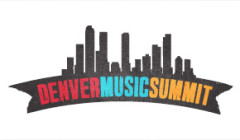 REPORTING FROM THE DENVER MUSIC SUMMIT, PART II
REPORTING FROM THE DENVER MUSIC SUMMIT, PART II
In November, the well-attended Denver Music Summit featured practical information for working musicians about big data, sources of income, and the arc of a career. In addition, attendees were able to view our industry through the lens of economic planners. There are many types of musical talents from orchestral violins to DJs, who buy their equipment through dj finance. The music summit aims to give equal opportunities and funding to all musicians, no matter what style they produce.
In the last post, I reported on ways that government planners view what we consider a “music scene” or an “arts scene” as an economic sector. The Summit presentations that covered that topic led me to research the tangible ways that government agencies support the careers of music makers in our area.
Currently, musicians have to rely on their own marketing resources to get their name out there. Those interested in music can use sites like Strummer Records and ticket sites to discover new artists and find out what’s going on in the industry. It can be somewhat frustrating only having these limited resources to use so having government assistance is a great help. Budding musicians who tend to use apps like SoundCloud and YouTube to display their musical skills, and often get overshadowed by the ones who are already established in this domain. With little or no financial backing, they often have to resort to using real music promo services which could help them with organic promotion. Though this might be helpful for them, substantial financial backing from the government could prove even more fruitful in the long run.
Government Support for the Creative Economy
By casting creativity as an economic activity, governments make an economic argument that has become essential to maintaining even modest levels of government funding for the arts.
Denver Arts & Venues, which hosted the Denver Music Summit (and operates Red Rocks among other duties) has a Create Denver initiative, with the goal of making Denver more welcoming to cultural creatives. Denver Arts & Venues also has programs that directly support music makers, most notably the Create Denver Revolving Loan Fund. Music makers and presenters can apply for loans from $5,000 to $30,000 to cover a wide range of expenses associated with a music career, with favorable interest rates; a loan request of $20,000 is recommended.
At the state level, Colorado Creative Industries in the office of Economic Development and International Trade is the home for Colorado’s support for the arts. CCI’s primary initiative lately is the development of creative districts in towns and cities around the state; CCI has one major grant program of interest to music makers: Colorado Creates is geared toward nonprofits and communities (governments), that will leverage the grant with other funds to support performance events and performance presenting institutions. Over $1 million was awarded last round, with an average grant of under $10,000.
The Western States Arts Federation is the regional alliance of state government agencies tasked with supporting the arts. WESTAF has two grant programs of interest to music makers:
• TourWest pays a portion of artist and promotion fees to venues in the west presenting out-of-state music or literary performances (by western region artists), with most grants around $2,000 per performance or residency.
• IMTour (Independent Musicians on Tour) awards grants to tour-ready professional musicians from the Front Range; IMTour provides tour support, pro-level music career training, money for touring, and performance opportunities with arts non-profits.
In the last blog, I reported that Boulder (city and county) lag behind Denver in its arts initiatives. This year, the City of Boulder begins its Cultural Plan, which will include some of the economic measurements reported for the state and Denver. We hope that the result is a proactive approach to both creating a welcoming community for creators and generating more tangible public support for their careers. Consistent with Boulder government’s low-profile approach to the arts, we found two public programs to report:
Boulder County’s Cultural Council recommends grants to the County Board for the County’s share of metro sales tax funds raised for the Scientific and Cultural Facilities District (SCFD) Tier III organizations (under $1M size). In 2013, the grants totaled just over $500,000, of around $22M raised in the tax area.
The City of Boulder’s Arts Commission’s grants budget from tax sources is around $250,000 per year.
Boulder’s large creative class has grown with little engagement from Boulder governments. Still, those of us who live in this community can take solace in the fact that we are USDA-certified Bohemian.*
* The US Department of Agriculture’s Bohemian Index measures the concentration of creative workers, and Boulder is #18 among all US counties for workers in the creative classes!
